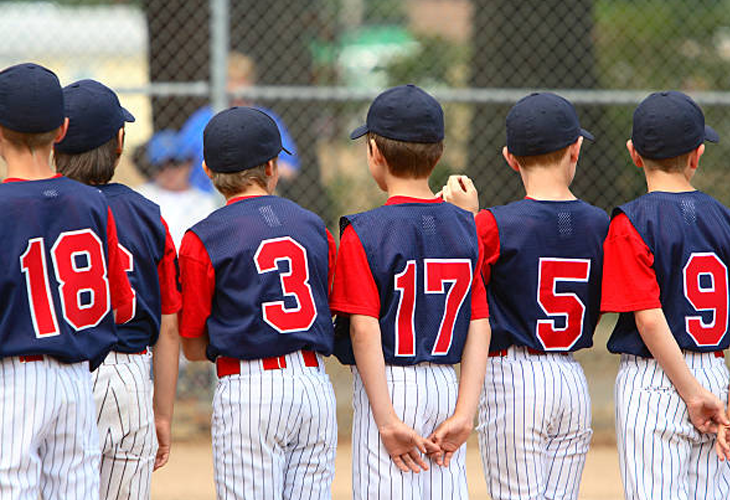
The day my son was born, we stuck a baseball in his left hand and busted out the camera, desperately hoping he’d one day love the game.
Five years later, he was on his first T-ball team and there I was, his proud coach. Today, he’s knocking on the door of high school and I’m still coaching him, for one last year. What a ride it has been! This experience has changed my life and taught me more than I could have ever imagined – about my son, about life and about myself. I’ve made mistakes along the way, but the longer I’ve coached kids, the more my focus has shifted away from the scoreboard and towards making the experience as fun as possible so the kids want to keep coming back. After all, isn’t that one of the main measures of success for any youth coach?
Here are some of the things that have worked for me out here in Foster City, California:
Roll the ball out: Kids just play ball without all the rules and restrictions. Every once in a while, dedicate a practice to letting them do just that. Kids pick the teams, play the positions they want, decide safe or out, steal when they want. Coaches can fill in on defense (you’ll be in the outfield, by the way), keep your mouth shut and observe. Okay, maybe you’ll need to call balls and strikes. But what you’ll see is a group of kids who plays more instinctively and is able to flourish in a “sandlot” game without the pressure to perform.
Multi-sport competition: Several years ago, after some inspiration from Augie Garrido’s Life Is Yours to Win: Lessons Forged from the Purpose, Passion, and Magic of Baseball, I went around my garage and loaded up my SUV with as much sports equipment as I could find. Not so much baseball stuff, but other things. We had tennis balls and rackets, footballs, basketballs, a couple golf balls, a putter and rollout putting green. Yes, everyone thought I was crazy, but hear me out. We split the team into two groups, let each give themselves a funny team name, and had a series of competitions.
Several important things happened here. For one, the kids competed. They learned how much winning meant, and how much they wanted it for their team. But more than that, some new heroes were born. Some who were struggling with baseball ended up saving the day after sinking a putt or hitting the big shot on the basketball court. It was incredible. Did that added confidence translate onto the baseball field? You better believe it!
Calling all pitchers: Not everyone is cut out to be a pitcher, but if they never get a shot in Little League or in Pony ball, when will they? If someone is eager to pitch, help them be as prepared as possible, then hand them the ball. If they struggle, you can always pull them out before things get too bad and their confidence is destroyed. If they tear it up, it’s a moment they’ll never forget and possibly the start of something great.
Everyone plays infield: One year I came home disappointed after a game, telling my wife that the outfielders weren’t paying attention. She responded: “Can you blame them? They went the whole game and maybe saw one ball!” From that point forward, I made sure that everyone on the team was trained up for at least one infield position and played at least one inning in the infield every game. For example – if a kid can catch but is raw in other areas, first base is a good infield option and a position that is involved in a lot of the action.
Make it measurable: Adding a little technology can really make things more interesting for everyone on the team. A Pocket Radar to measure velocity or a Blast Motion sensor are good measuring tools that can aid in development. Of course, you’ll want to make sure everyone knows that they are competing against themselves and not their teammates.
Let winning take care of itself: Winning is the result of all the hard work and dedication put in during practice, both individually and as a team. It isn’t the other way around. For kids to play their best, it’s vital to help them focus on the process over the results, just like the coaches should be doing.
Clear the mechanism: It’s key for kids of all ages to be easy on themselves and play with as little fear as possible. The game just gets tougher when parents and coaches are spewing endless streams of instruction and critiques. A signal to remind your players to breathe and refocus can be beneficial, especially whenever they are visibly struggling.
Emphasize attitude and effort: If all the focus is on winning, it’s easy for kids to get out of sorts and lose a sense for what’s really important. For young ballplayers to become the best version of themselves, this needs to be coached and repeated throughout the season. Ken Griffey Jr. said it best: “Talent may get you on the field, but it’s effort and attitude that will keep you there."